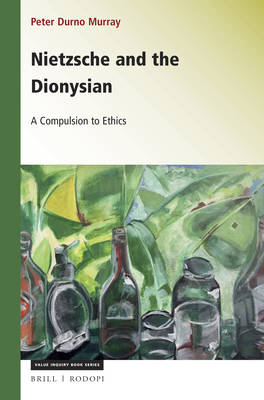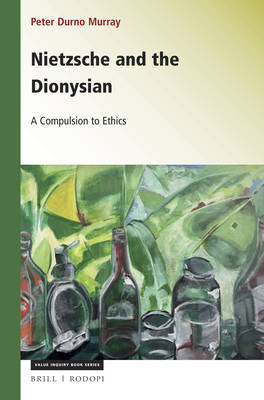
- Afhalen na 1 uur in een winkel met voorraad
- Gratis thuislevering in België vanaf € 30
- Ruim aanbod met 7 miljoen producten
- Afhalen na 1 uur in een winkel met voorraad
- Gratis thuislevering in België vanaf € 30
- Ruim aanbod met 7 miljoen producten
Zoeken
Omschrijving
Nietzsche and the Dionysian argues that the shuddering mania of the affect associated with Dionysus in Nietzsche's early work runs as a thread through his thought and is linked to an originary interruption of self-consciousness articulated by the philosophical companion. In this capacity, the companion can be considered a 'mask of Dionysus', or one who assumes the singular role of the transmitter of the most valuable affirmative affect and initiates a compulsion to respond which incorporates the otherness of the companion. In the context of such engagements, Nietzsche envisages 'Dionysian' or divine 'madness' within an optics of life, through which an affirmative ethics can be thought. The ethical response to the philosophical companion requires an affirmation of the plurality of life, formulated in the imperatives to be 'true to the earth' and 'become who you are'. Such an ethics, compelled by the Dionysian affect, grounds any future for humanity in the affirmation of the earth and life.
Specificaties
Betrokkenen
- Auteur(s):
- Uitgeverij:
Inhoud
- Aantal bladzijden:
- 380
- Taal:
- Engels
- Reeks:
- Reeksnummer:
- nr. 320
Eigenschappen
- Productcode (EAN):
- 9789004364868
- Verschijningsdatum:
- 28/06/2018
- Uitvoering:
- Paperback
- Formaat:
- Trade paperback (VS)
- Afmetingen:
- 152 mm x 231 mm
- Gewicht:
- 557 g

Alleen bij Standaard Boekhandel
+ 265 punten op je klantenkaart van Standaard Boekhandel
Beoordelingen
We publiceren alleen reviews die voldoen aan de voorwaarden voor reviews. Bekijk onze voorwaarden voor reviews.











